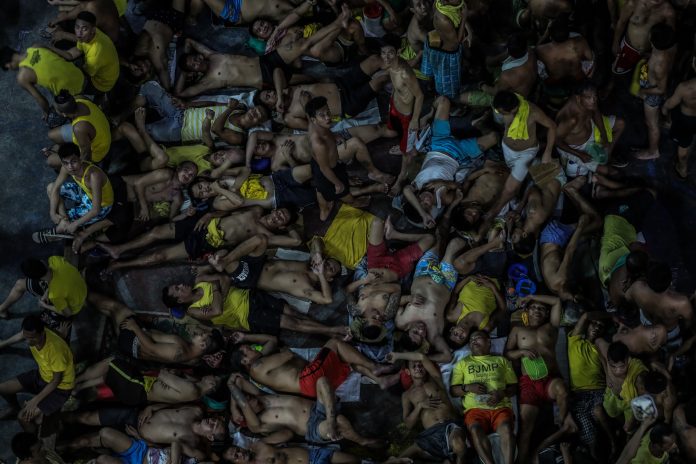Human rights organizations called on the Philippine government to release political prisoners amid reports that inmates in crowded Manila jails have been infected by the new coronavirus disease.
The Philippine Supreme Court has earlier ordered the release of 9,731 prisoners who are awaiting trial but cannot afford to post bail.
But of the almost 10,000 prisoners freed, no political prisoner has been included because most of their cases are tagged as “non-bailable.”
“The same compassion shown to the released prisoners should be given to political prisoners,” said Peter Murphy of the International Coalition for Human Rights in the Philippines.
“We are once again appealing to the leaders of the Philippine judiciary system to act now, to make the just, humane decision of freeing the elderly, sick, vulnerable and all political prisoners,” he said.
Church leaders have also appealed to the government for the release political prisoners and detained human rights defenders.
Bishop Gerardo Alminaza of San Carlos backed the call for the release of political prisoners, saying that it will send a “strong message” of the government’s “desire for peace and goodwill.”
“This is a matter of life and death calling for extraordinary measures,” said the bishop, adding that there is an “undeniable threat” of catastrophe in jails that are “filled far beyond capacity.”
“For all that is humane, good, and loving, now is a moment for urgent action,” he said.
“We must muster the courage to address the glaringly high-risk of a COVID-19 outbreak, now forced upon those behind bars,” said Bishop Alminaza.
Sharon Cabusao of the group Kapati – Friends and Families of Political Prisoners expressed concern over the safety and health of those in detention.
In a webinar sponsored by the Center for Women Resources, Cabusao said families of political prisoners have been receiving stories of detainees getting sick.
“The government refuses to acknowledge the validity or moral grounds to release (political prisoners) for humanitarian reasons,” said Cabusao.

In September 2019, the country’s Bureau of Jail Management and Penology has recorded a 394 percent congestion rate in detention facilities.
Officials at the country’s national penitentiary also revealed that about 5,200 inmates at the national prison “die annually due to overcrowding, disease, and violence.”
According to Bureau of Corrections January statistics, its prison facilities are overcrowded by 310 percent as 49,114 inmates occupy prisons that have a maximum capacity of 11,981 persons.
Justice Secretary Menardo Guevarra has admitted that the overcrowded prison and detention facilities of the country pose a problem amid the threat of the new coronavirus disease.
The United Nations High Commissioner for Human Rights has called on governments to protect the health and safety of people in detention as part of efforts against the pandemic.
UN commissioner Michelle Bachelet noted that jails in many countries are overcrowded and people are often held in “unhygienic conditions” and health services are “inadequate or even non-existent.”
“Physical distancing and self-isolation in such conditions are practically impossible,” she said in a statement.
The UN official called for release of those detained “without sufficient legal basis,” including political prisoners and others detained “simply for expressing critical or dissenting views.”
In the Philippines, there are at least 609 political prisoners in jails across the country. Of the total number of political detainees, 63 are sickly and 47 are elderly.









